Abstract
OBJECTIVE: To determine if the incidence of psychiatric emergencies involving drugs or alcohol supports the argument that mentally ill persons contribute to elevated mortality during the days following disbursement of private earnings and public income transfers. STUDY DESIGN: Interrupted time-series using Box-Jenkins methods. DATA COLLECTION/EXTRACTION METHODS: Daily counts of adults admitted to psychiatric emergency services in San Francisco after using drugs or alcohol were derived from medical records for the period January 1 through June 30, 1997. PRINCIPAL FINDINGS: Psychiatric emergencies among males who had used drugs or alcohol were elevated in the early days of the month. Such emergencies among females were not similarly elevated. Emergencies among females who had not used drugs or alcohol were elevated in the early days of the month. CONCLUSION: Elevated mortality in the first week of the month may be attributable, in part, to the "check effect" or use of drugs and alcohol by mentally ill males in the days after they receive income. The contribution of women is more complex and may be induced by drug or alcohol abuse among persons in their social networks. The check effect suggests that persons with a history of substance abuse and mental illness should be offered the opportunity to have their income managed by someone who can monitor and influence how the money is being spent. The fact that drug- or alcohol-related admissions among males exhibit temporal patterns suggests that the provision of preventive as well as treatment services may be strategically scheduled.
Full text
PDF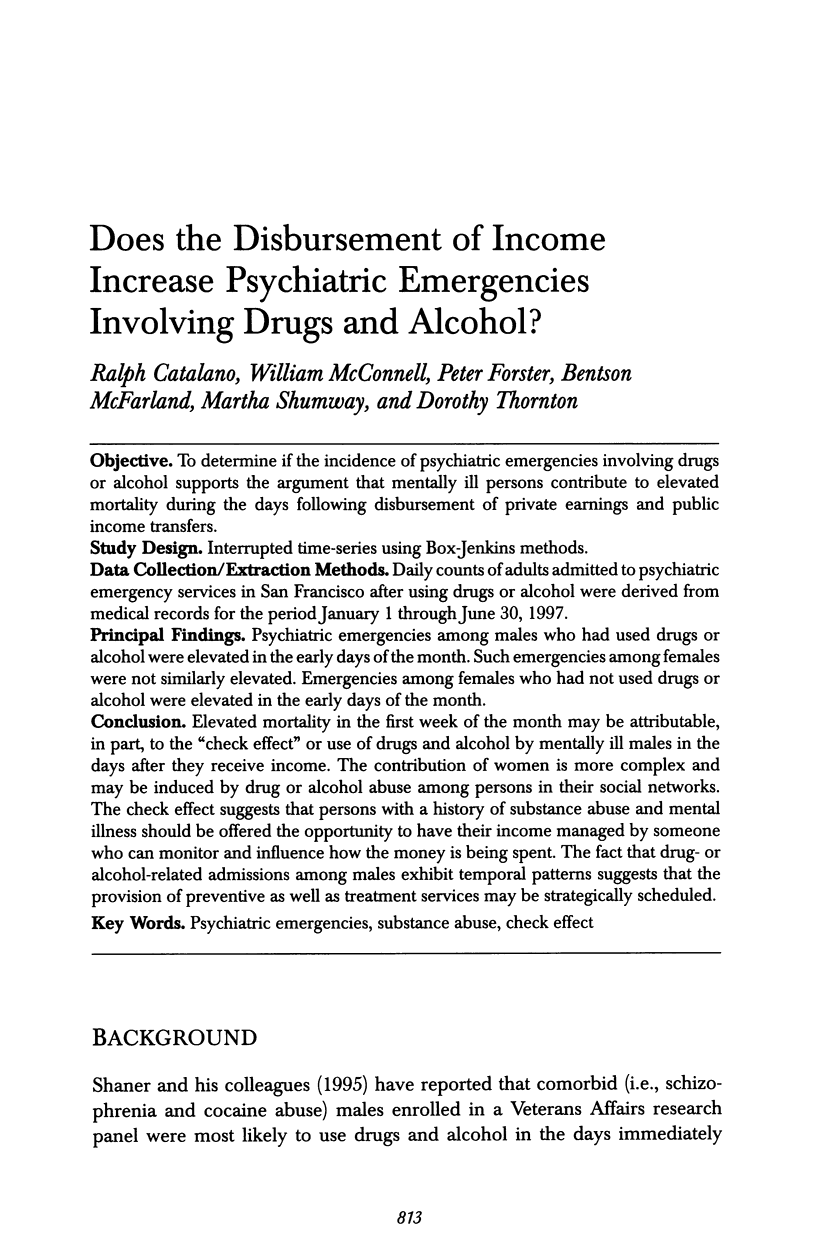
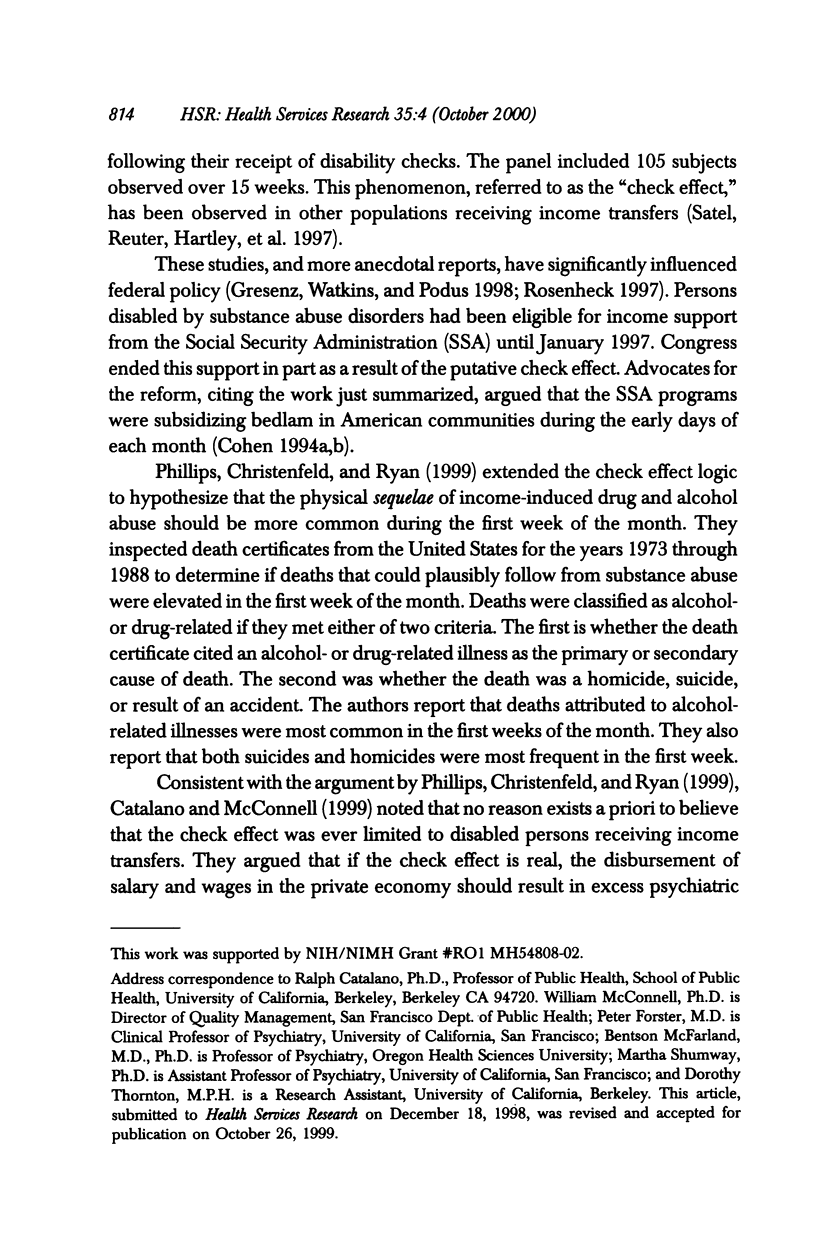
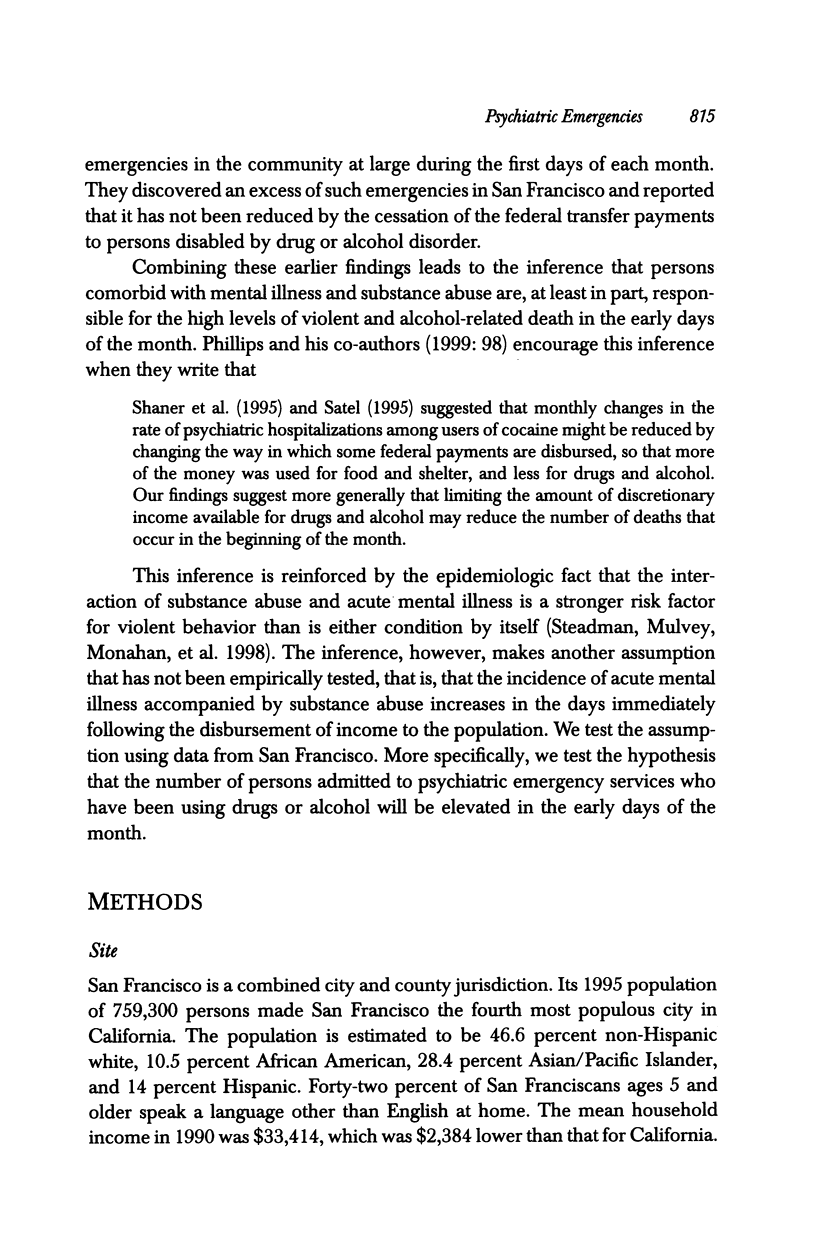
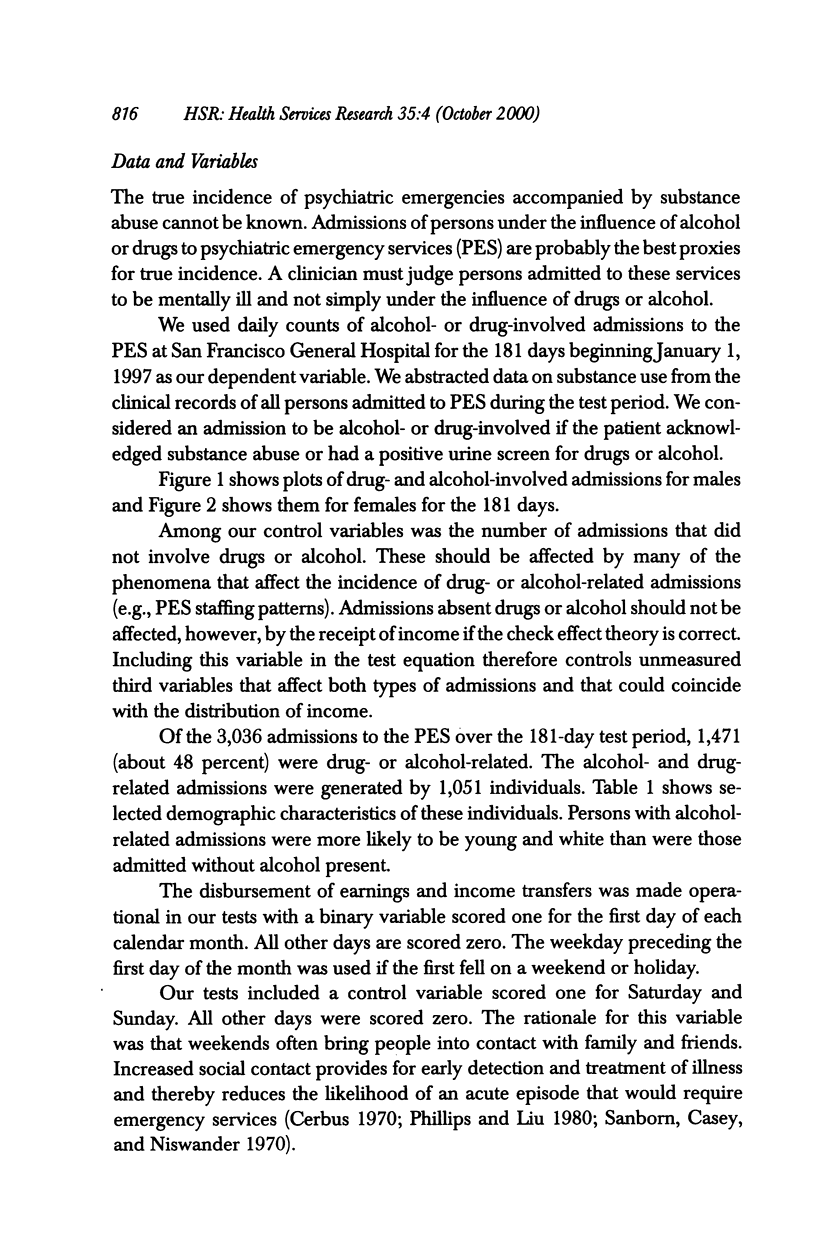
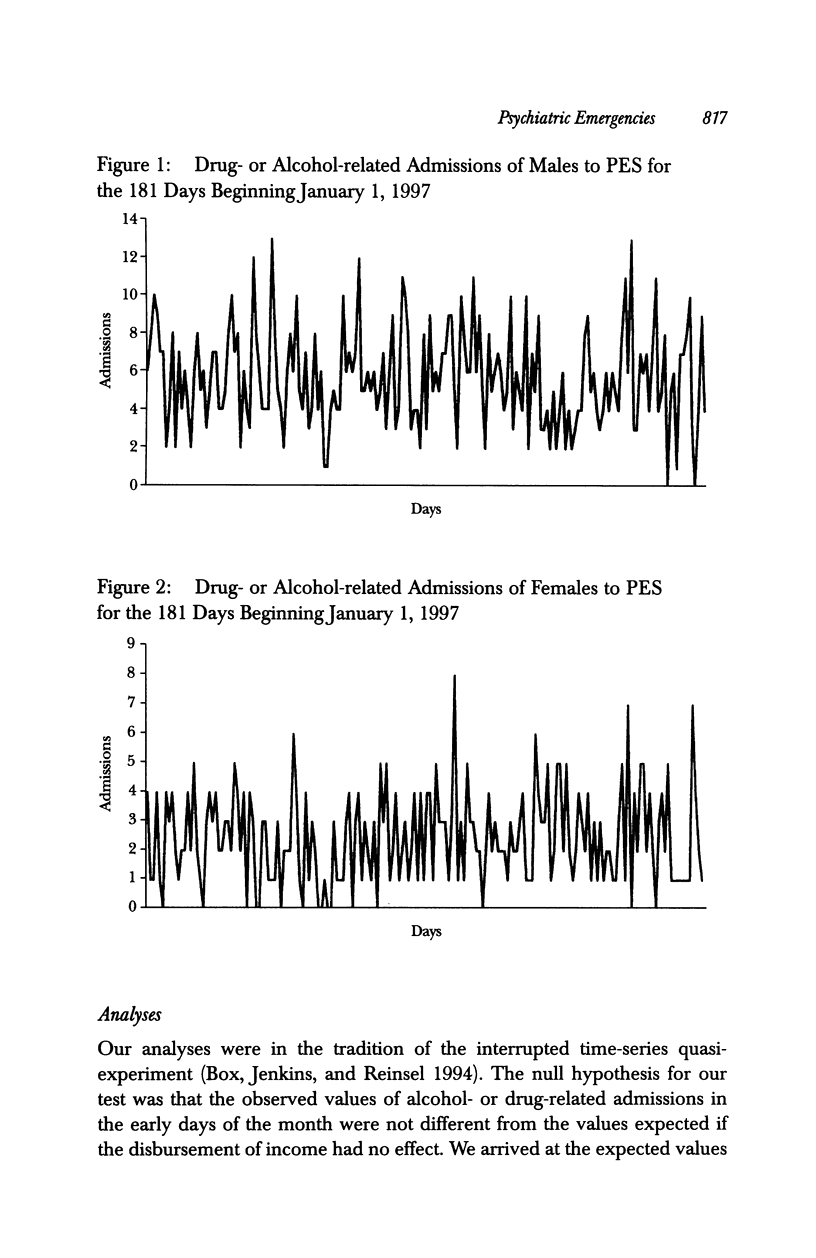
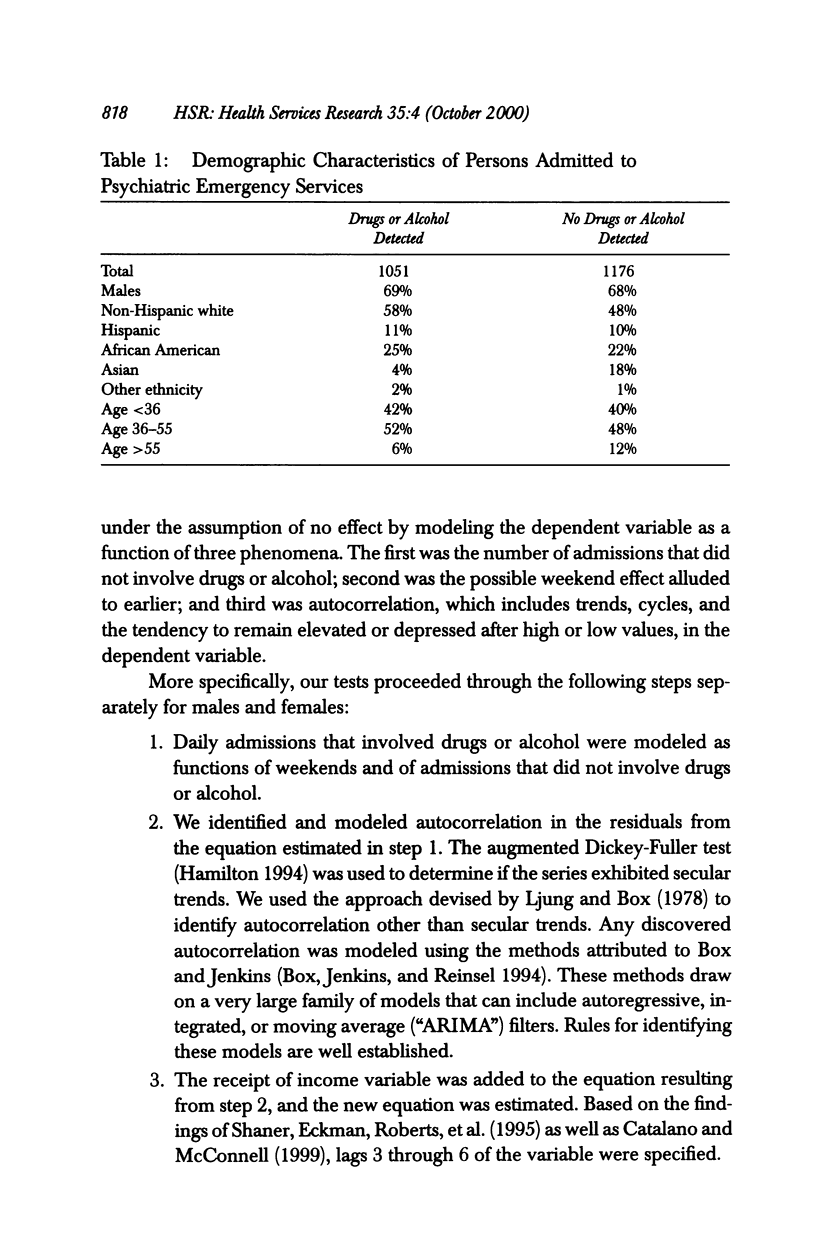
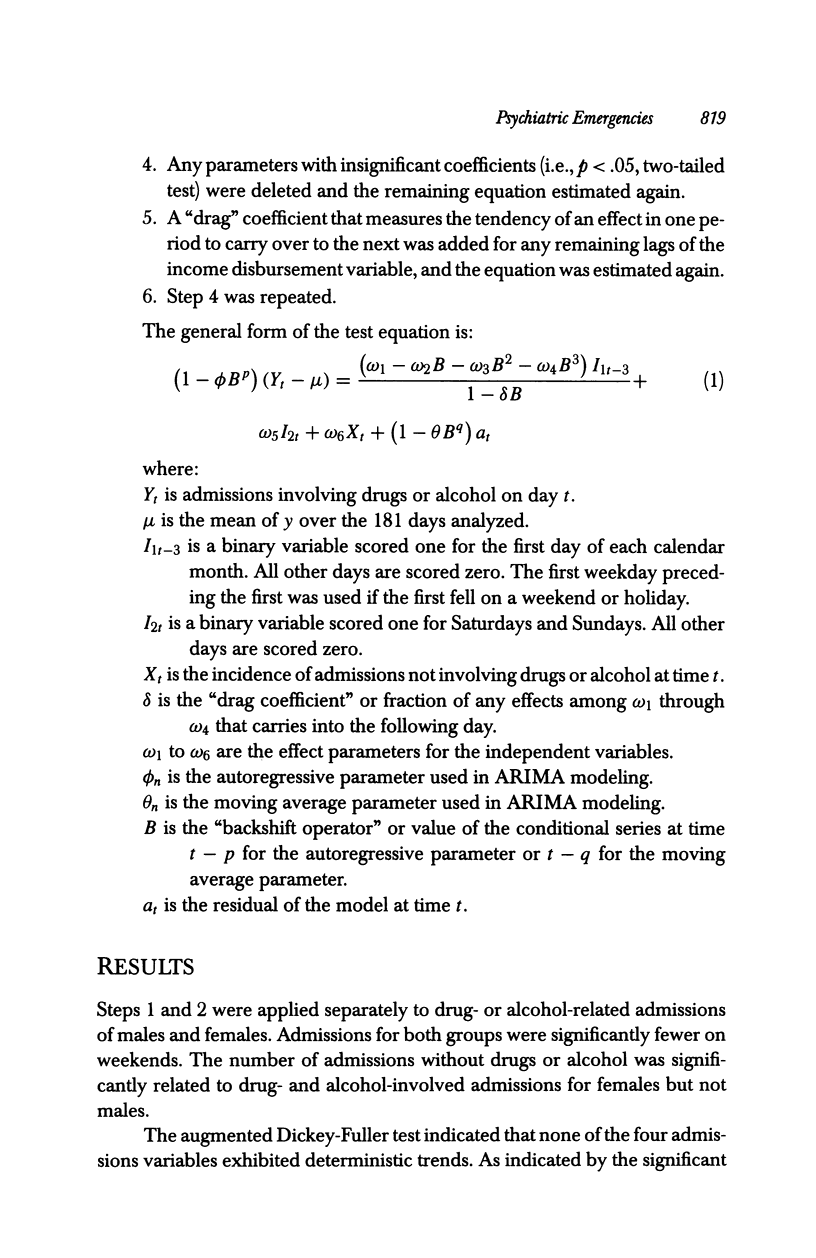
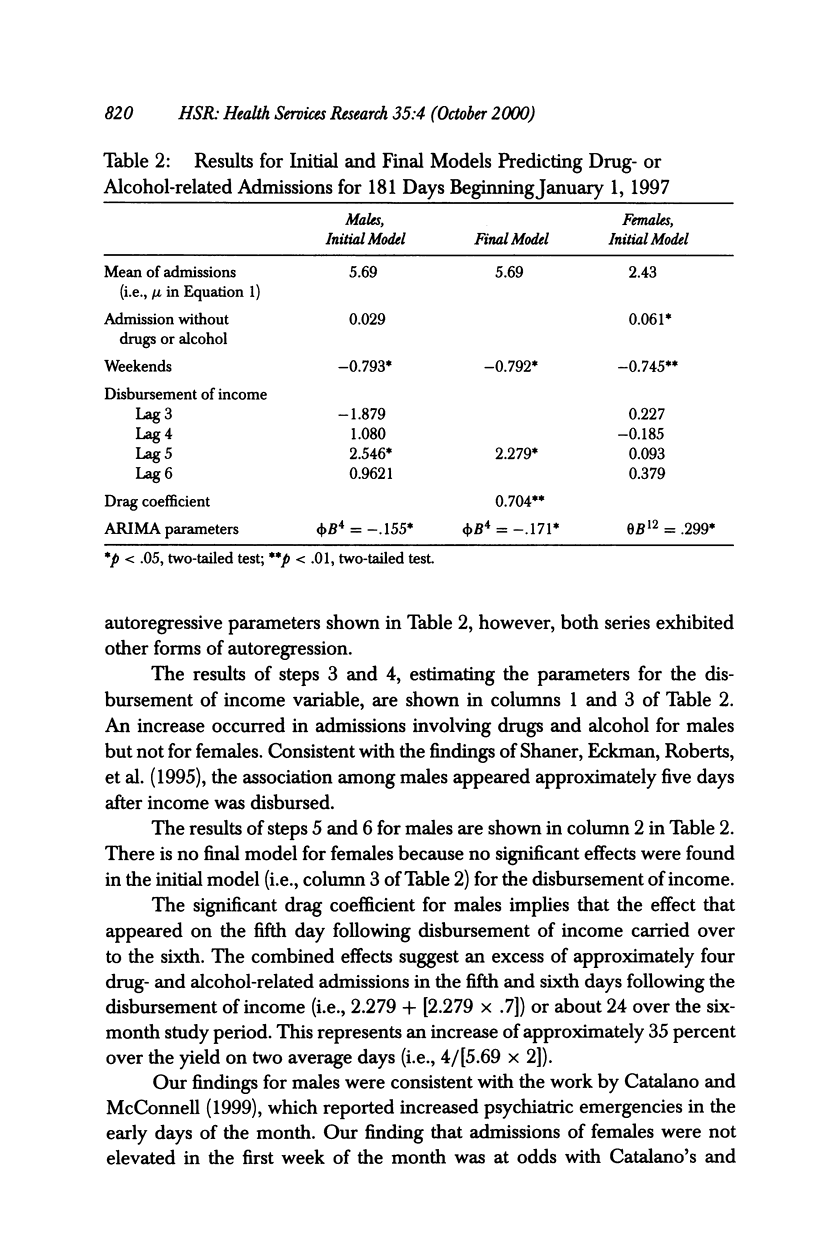
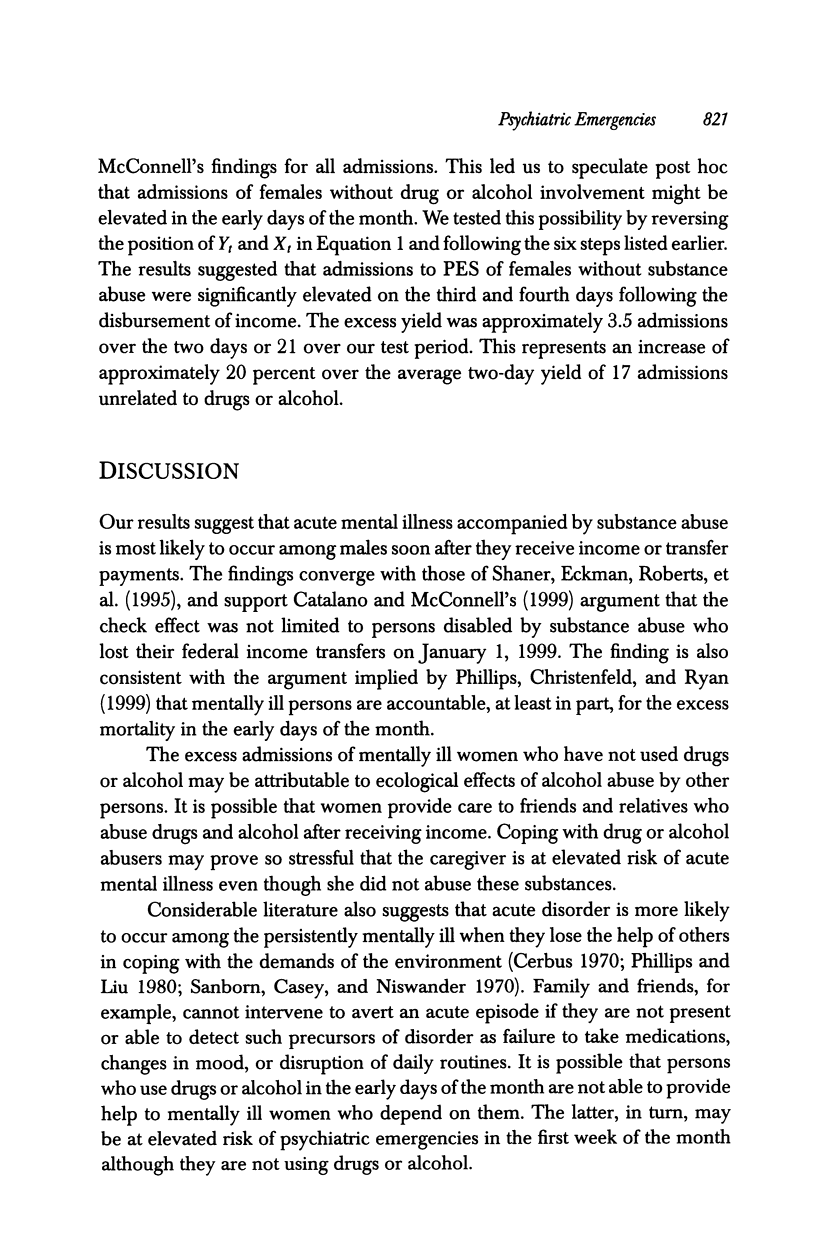
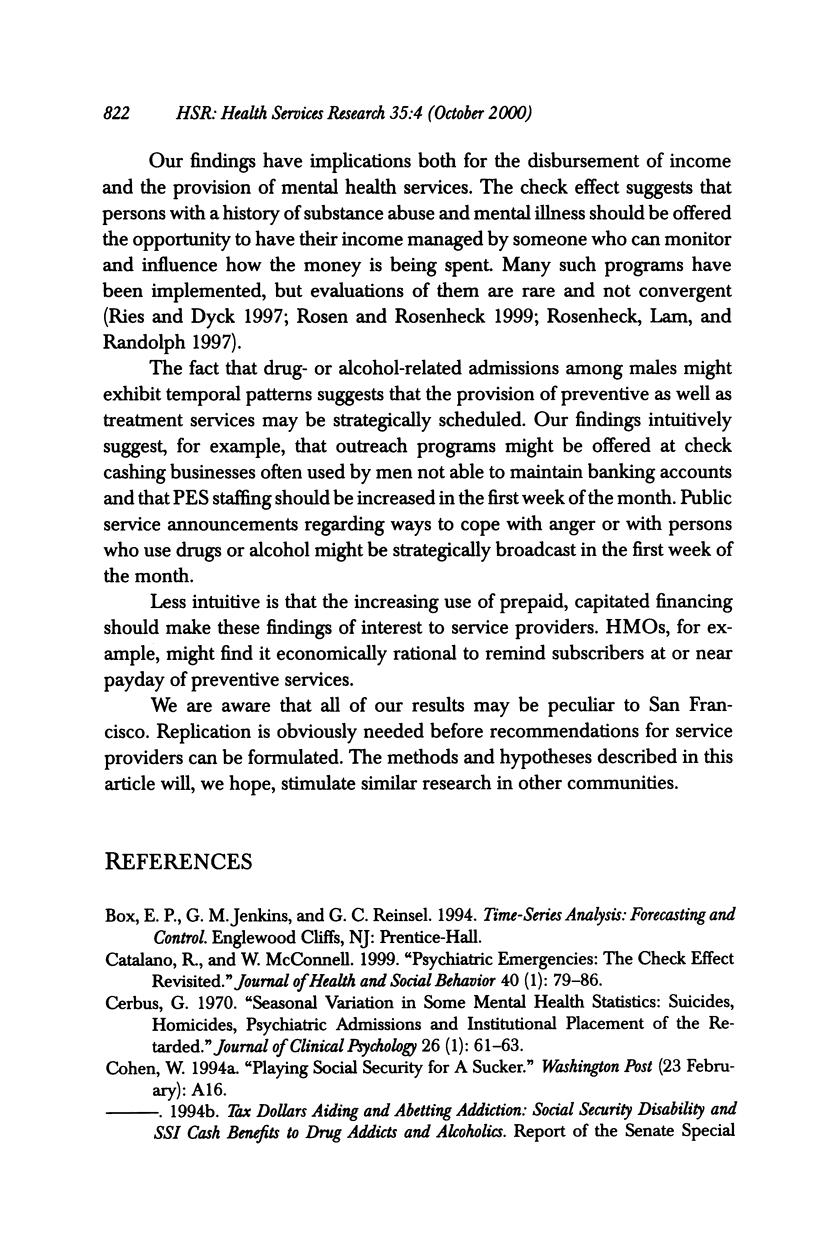
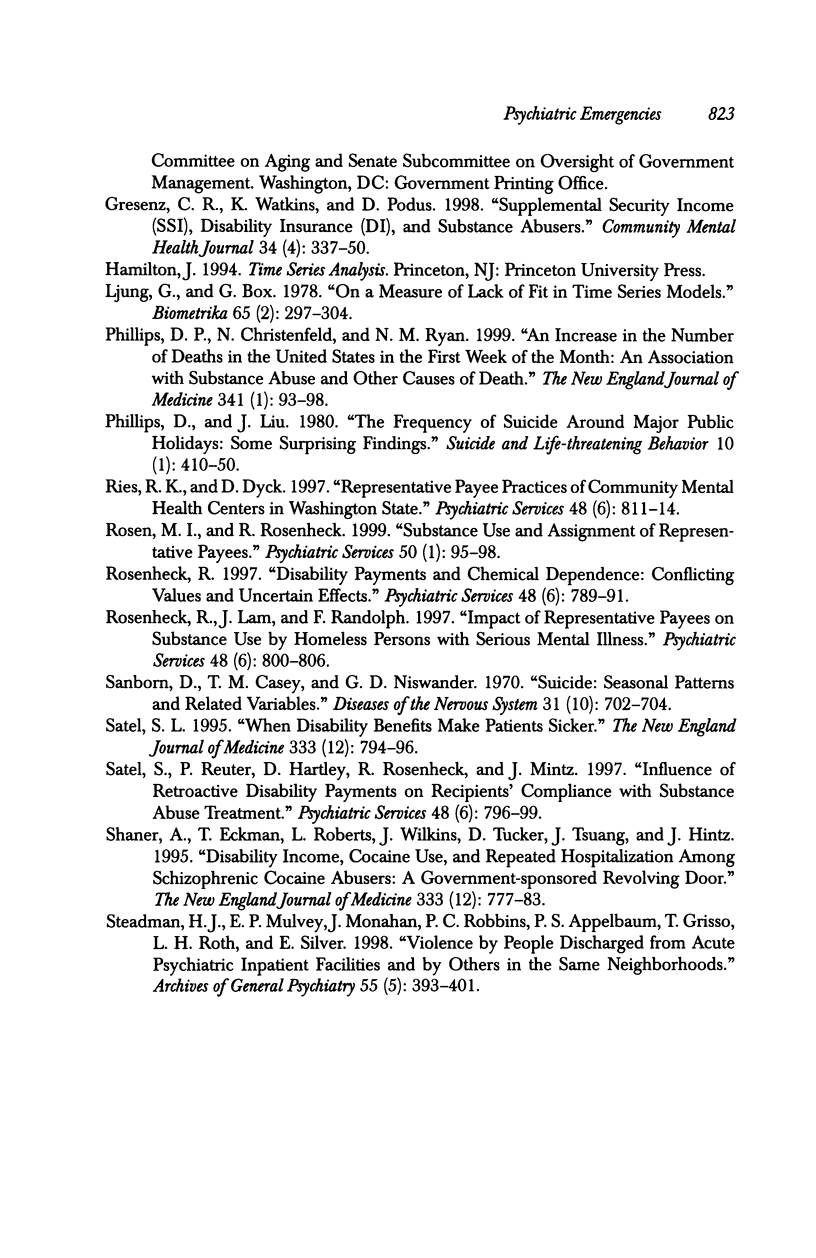
Selected References
These references are in PubMed. This may not be the complete list of references from this article.
- Catalano R., McConnell W. Psychiatric emergencies: the check effect revisited. J Health Soc Behav. 1999 Mar;40(1):79–86. [PubMed] [Google Scholar]
- Cerbus G. Seasonal variation in some mental health statistics: suicides, homicides, psychiatric admissions, and institutional placement of the retarded. J Clin Psychol. 1970 Jan;26(1):61–63. doi: 10.1002/1097-4679(197001)26:1<61::aid-jclp2270260114>3.0.co;2-j. [DOI] [PubMed] [Google Scholar]
- Gresenz C. R., Watkins K., Podus D. Supplemental Security Income (SSI), Disability Insurance (DI), and substance abusers. Community Ment Health J. 1998 Aug;34(4):337–350. doi: 10.1023/a:1018779805833. [DOI] [PubMed] [Google Scholar]
- Phillips D. P., Christenfeld N., Ryan N. M. An increase in the number of deaths in the United States in the first week of the month--an association with substance abuse and other causes of death. N Engl J Med. 1999 Jul 8;341(2):93–98. doi: 10.1056/NEJM199907083410206. [DOI] [PubMed] [Google Scholar]
- Ries R. K., Dyck D. G. Representative payee practices of community mental health centers in Washington State. Psychiatr Serv. 1997 Jun;48(6):811–814. doi: 10.1176/ps.48.6.811. [DOI] [PubMed] [Google Scholar]
- Rosen M. I., Rosenheck R. Substance use and assignment of representative payees. Psychiatr Serv. 1999 Jan;50(1):95–98. doi: 10.1176/ps.50.1.95. [DOI] [PubMed] [Google Scholar]
- Rosenheck R. Disability payments and chemical dependence: conflicting values and uncertain effects. Psychiatr Serv. 1997 Jun;48(6):789–791. doi: 10.1176/ps.48.6.789. [DOI] [PubMed] [Google Scholar]
- Rosenheck R., Lam J., Randolph F. Impact of representative payees on substance use by homeless persons with serious mental illness. Psychiatr Serv. 1997 Jun;48(6):800–806. doi: 10.1176/ps.48.6.800. [DOI] [PubMed] [Google Scholar]
- Sanborn D. E., 3rd, Casey T. M., Niswander G. D. Suicide: seasonal patterns and related variables. Dis Nerv Syst. 1970 Oct;31(10):702–704. [PubMed] [Google Scholar]
- Satel S. L. When disability benefits make patients sicker. N Engl J Med. 1995 Sep 21;333(12):794–796. doi: 10.1056/NEJM199509213331210. [DOI] [PubMed] [Google Scholar]
- Satel S., Reuter P., Hartley D., Rosenheck R., Mintz J. Influence of retroactive disability payments on recipients' compliance with substance abuse treatment. Psychiatr Serv. 1997 Jun;48(6):796–799. doi: 10.1176/ps.48.6.796. [DOI] [PubMed] [Google Scholar]
- Shaner A., Eckman T. A., Roberts L. J., Wilkins J. N., Tucker D. E., Tsuang J. W., Mintz J. Disability income, cocaine use, and repeated hospitalization among schizophrenic cocaine abusers--a government-sponsored revolving door? N Engl J Med. 1995 Sep 21;333(12):777–783. doi: 10.1056/NEJM199509213331207. [DOI] [PubMed] [Google Scholar]
- Steadman H. J., Mulvey E. P., Monahan J., Robbins P. C., Appelbaum P. S., Grisso T., Roth L. H., Silver E. Violence by people discharged from acute psychiatric inpatient facilities and by others in the same neighborhoods. Arch Gen Psychiatry. 1998 May;55(5):393–401. doi: 10.1001/archpsyc.55.5.393. [DOI] [PubMed] [Google Scholar]


